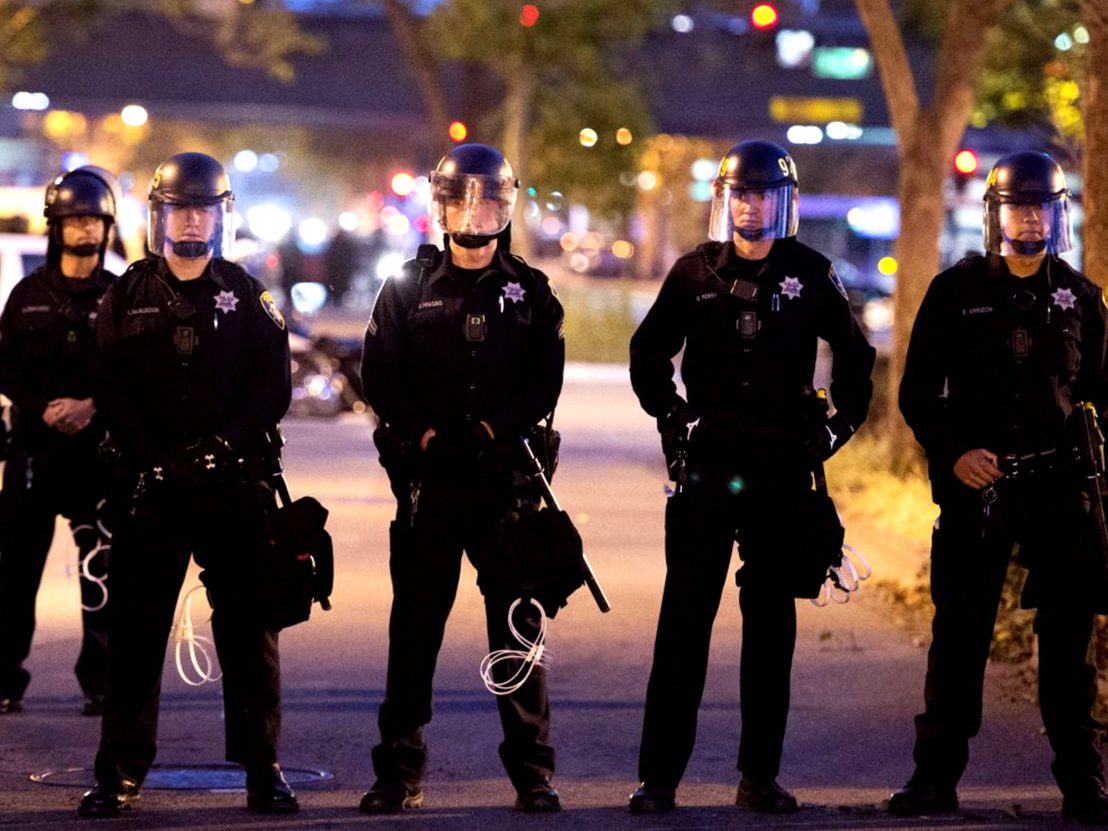
This timely, well-intentioned doc offers a revealing look at the inner workings of the Oakland PD.
Immersing himself in one of the most troubled police forces in the US, filmmaker Peter Nicks happened to time his examination of Oakland law enforcement at a critical juncture in its history. Filmed from 2014 onwards, The Force reveals that, thanks to a series of much-needed, decade-long reforms, the department was well below the national average for police-related shootings, which gave rise to protest movements like Black Lives Matter. In fact, crime as a whole was significantly down in a city previously renowned for violent assaults and theft.
With access to sensitive internal material, Nicks’ fly-on-the-wall PBS doc captures the year’s new recruits being put through their paces – including theoretical and practical tear gas and arms training. Chief Whent reminds the predominantly male force that the public’s perception of their work is paramount, that they represent the US government and must be held accountable at every level.
At one point, Whent even releases police body cam footage to the media to try and and calm and clarify a case involving a suspect and a police pursuit. Such gestures and sentiments come back to haunt the chief, but the point is seemingly clear. As a piece of PR, the message appears to be that Oakland’s citizens can and should be able to hold their law enforcement to task.
Inevitably, things begin to unravel following the events of Ferguson, MO. Several officers’ excessive response to a possibly armed suspect sets off a disastrous chain of events, before a sex scandal threatens to undo Whent’s work and take the entire department down.
Despite its premise – and promise of unparalleled access – the film feels constrained by what it can or can’t show (presumably so as not to incriminate certain officers). A discussion around the subject of police force – with one insisting that 13 rounds of ammunition to subdue a suspect is not excessive – is one of the few occasions where we feel privy to something truly shocking and alarming. Too often, though, what is presented feels more like an airbrushed version of events.
There is precious little analysis as to why the department had such a terrible record pre-2003. Or, for that matter, what makes the new recruits want to become police officers in the first place. What exactly is the character profile of a US police offer? Questions like this are never asked.
Similarly, the inherent racism that blights the force, staining its reputation in the national consciousness, is barely touched upon. In a telling sequence of events, a scandal involving a 16-year-old prostitute and a numbers of officers is viewed as infinitely more shocking than any suspected wrongdoing in the use of excessive force against black suspects.
The film would have undoubtedly benefitted from adopting a black perspective, even if only in part. Despite its sincere attempts to explore the so-called “toxic, macho” culture in the department, race ultimately remains the single most alarming issue affecting law enforcement, both in Oakland and across America. Oakland PD may have had a better track record for much of the last decade, but those stats soon begin to fall away as the nation becomes again caught up in a problem that, without any real analysis or legal precedent, refuses to go away.
Published 27 Jan 2017

By Joseph Pomp
Ava DuVernay equates the US prison system to modern day slavery in this harrowing, urgent documentary.

How a handful of filmmakers and a simple hashtag turned stories of African-American oppression into a national concern.

By Thomas Hobbs
This Tupac and Tim Roth starring social drama feels more relevant today than ever.